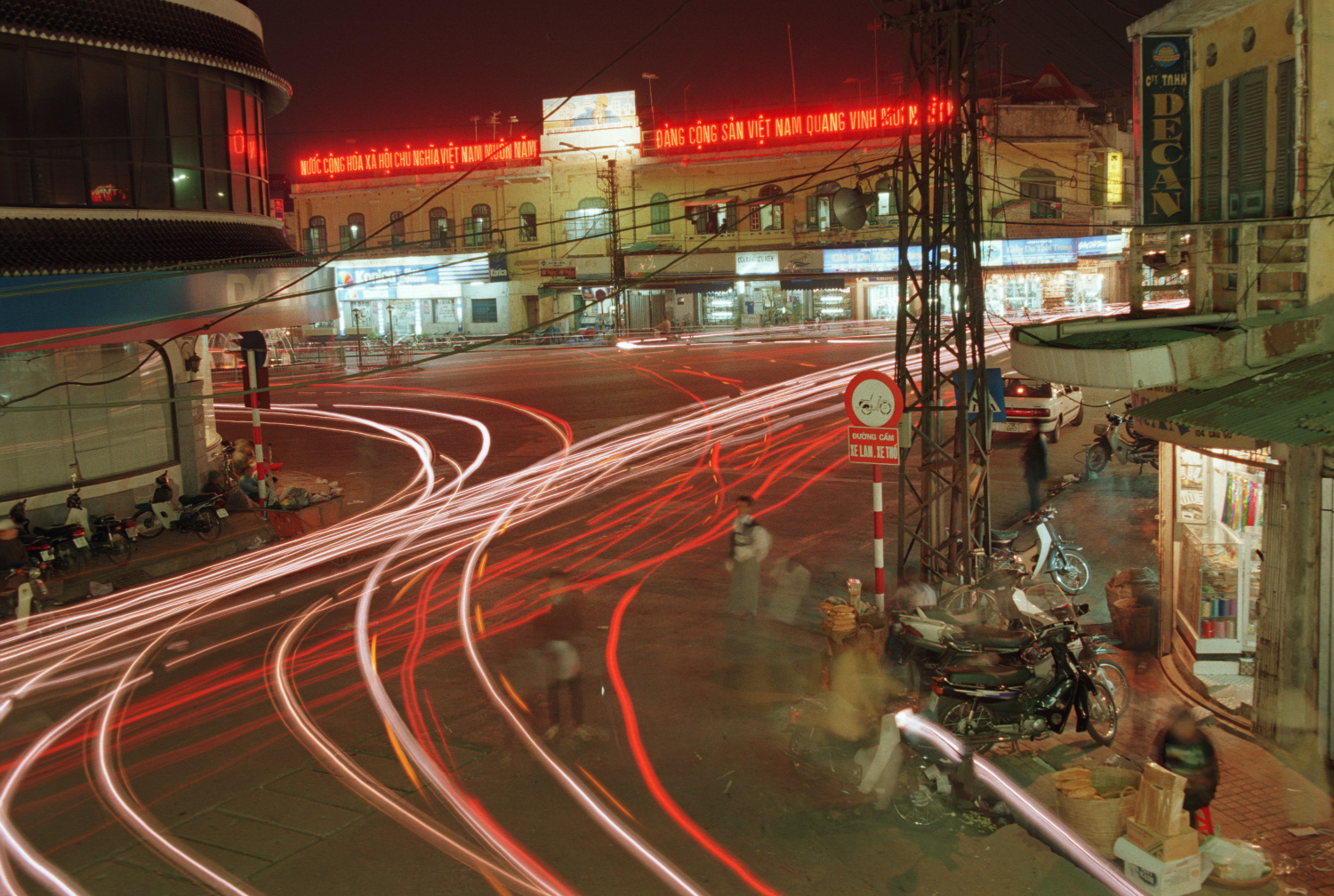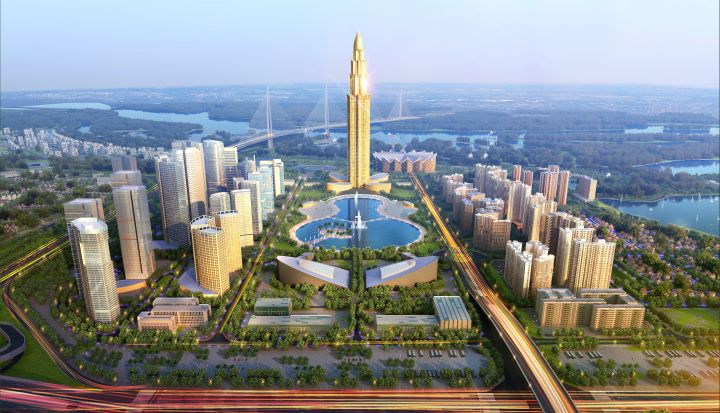
Ground has been broken at the Smart City project on the outskirts of Hanoi, to be developed by leading Vietnamese developer BRG Group and Japanese trading house Sumitomo Corporation in five phases with total estimated investment of nearly $4.2 billion.
The project, slated to be one of the largest urban development in Vietnam, kicks off in 2020 with the construction of about 7,000 apartments and homes.
Located in a great position on the route directly linking the center of Hanoi and Noi Bai International Airport, BRG and Sumitomo formed a 50-50 joint venture to develop the Smart City project which will cover nearly 272 ha, located a 20-minute drive from the center of the capital city
According to the plan prepared by the BRG - Sumitomo joint venture, people living in the Smart City will enjoy the full benefits stemming from the synchronous development of modern and sustainable infrastructure, promoting Hanoi’s socioeconomic development.
"City planning is an effort without a fixed goal," Sumitomo President Masayuki Hyodo said. "We will create a city that suits Vietnam."
In the northern reaches of Hanoi, the Smart City is community oriented, with facilities such as schools, healthcare centers, security systems, disaster prevention measures, and commercial areas, as well as green parks, canals, and a garden of sakura trees, to deliver a comfortable life to local people. It is expected that the project will install a multifunctional intelligent monitoring and warning system to monitor air quality, water, weather, disaster risks, and security in the city, ensuring maximum safety for residents.
High-rise apartments will be built in the first phase, with occupancy set to begin in 2022 for 20,000 to 25,000 people. Office buildings and large commercial facilities will be constructed in the second phase. A rail station that links to Hanoi's city center and the international airport is planned for the future.
At the same time, the BRG - Sumitomo joint venture will compile a detailed plan on the application of smart technologies such as 5G, facial recognition, and blockchain, which will contribute to improvements in services in the capital. Along with a smart economy, there will be high-end, modern services that hasten trade between domestic and foreign businesses. The Smart City will be an important foundation for increasing the competitiveness of Vietnam’s economy.
The companies will employ "internet of things" technology to promote energy savings. They aim to create Vietnam's leading smart city by using state-of-the-art systems such as surveillance cameras tapping facial recognition and artificial intelligence.

The project is considered a stepping stone towards Vietnam achieving its socioeconomic development ambitions. At the same time, it also will be a place that connects trade between Vietnam and other countries in the region and the world.
As part of activities to celebrate the 65th anniversary of Hanoi’s Liberation Day (October 10), BRG Group and Sumitomo Corporation officially held a breaking ground and announcement ceremony on October 6 for the Smart City project, in the presence of Prime Minister Nguyen Xuan Phuc.
The implementation of the project demonstrates the pioneering spirit and determination of Hanoi authorities in quickly bringing to life the Politburo’s Resolution on Industry 4.0, in which Vietnam is to have at least three smart cities in its three key economic regions - the North, the South, and the Central - by 2025.
Ms. Nguyen Thi Nga, Chairwoman of the BRG Group, said that a smart city is a city for future generations. “Today we begin construction of our Smart City, but it is not just for our generation but, more importantly, it’s to build a solid foundation for the development of future generations of Vietnamese people,” she added. “In living in the Smart City, the capacity of Vietnamese people will be truly boosted, creating momentum to promote socioeconomic development quickly. My desire has always been to dedicate the best things to Hanoi, for our capital to not be cluttered by small projects and lacking in synchronized planning, but to develop into a modern city rivaling and even surpassing other developed cities.”
Vietnam has benefited as production shifts away from China due to the trade war between Washington and Beijing. The Southeast Asian country's economy is expected to keep growing at a 7% pace in the near future, with real estate development likely to continue.


















